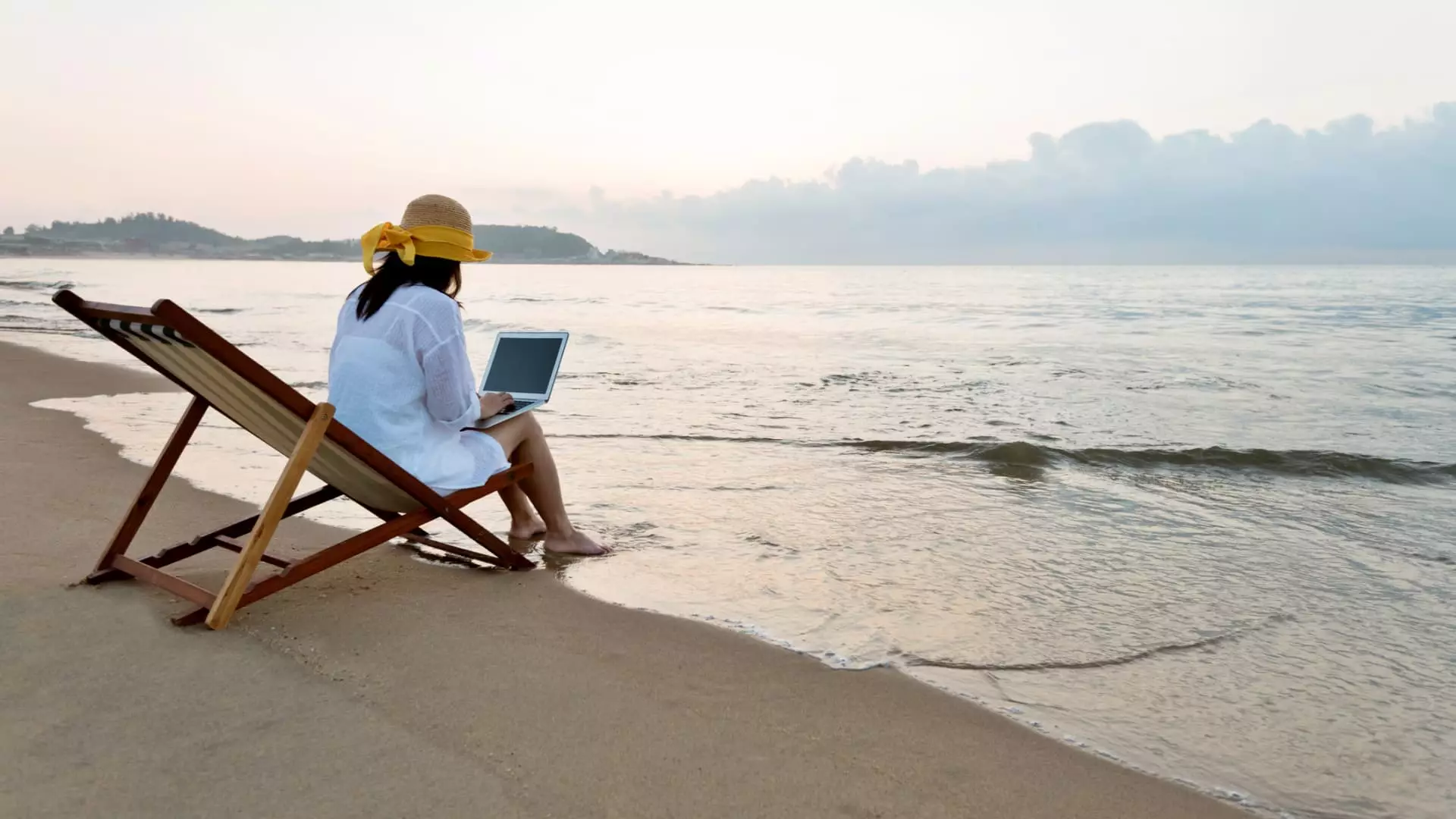As the holiday season approaches, Americans are set on maximizing their travel experiences, and the rise of remote work is playing a pivotal role in their plans. This transformation in work culture allows for greater flexibility, enabling people to blend work and leisure in unprecedented ways. The latest insights from the Deloitte holiday travel survey reveal that almost half of employed travelers now identify as “laptop luggers,” a significant increase from previous years. This article explores the implications of this trend and how it shapes the future of holiday travel.
The term “laptop lugger” characterizes the growing segment of travelers who plan to incorporate work into their holiday itineraries. According to Deloitte, about 49% of surveyed employees intend to work during their vacations, a notable rise from 34% the previous year. This shift is particularly pronounced among younger generations, especially Gen Z, where 58% of respondents indicate they will be working remotely while traveling. This indicates a cultural shift where work and travel can converge, offering employees the ability to enjoy their vacations without entirely disconnecting from their responsibilities.
This trends serves not just as a reflection of personal convenience, but also underscores a significant change in workplace dynamics. Eileen Crowley of Deloitte notes the significant cross-demographic increase in laptop luggers. Higher-income individuals and younger generations appear particularly inclined to make work travel a norm, leading to more intricate travel plans that can accommodate professional obligations alongside personal enjoyment.
The growth of remote work opportunities has transformed job seekers’ priorities. A recent survey by ZipRecruiter found that over half of respondents value the ability to work from anywhere, a stark increase from previous years. This growing preference aligns with a burgeoning desire for flexibility, which can ultimately result in heightened job satisfaction and work-life balance. As the lines between work and leisure blur, employees are finding ways to maintain productivity while also experiencing new destinations and cultures.
However, with this new avenue for travel comes a need for accountability. Employees interested in this work-travel blend must remain mindful of their company’s remote work policies. Julia Pollak emphasizes the importance of understanding these guidelines to avoid negative repercussions during a holiday getaway. The evolving nature of work may provide more freedom, but it also requires a degree of caution and communication with employers.
While the freedom to travel may be increasing, financial considerations remain paramount, especially with the backdrop of inflation and economic uncertainty. According to Morning Consult data, a majority of higher-income earners can easily afford holiday travel, allowing them to maintain their usual spending habits. In contrast, those in lower income brackets appear more budget-conscious, seeking ways to cut costs while still embracing the holiday spirit.
Interestingly, the Deloitte survey explores the budgeting strategies people are utilizing during this holiday season. About 83% of travelers are adjusting their plans in some way to save money, whether it means choosing to drive rather than fly or leveraging credit card points. This strategy reflects a growing trend where people opt to travel differently to preserve their finances while not entirely sacrificing their holiday plans.
Furthermore, many individuals are adapting their travel schedules by aiming for off-peak days, enhancing affordability while still allowing for enjoyable experiences. The data indicates that people are increasingly willing to explore alternative travel arrangements or seek discounts, resulting in a more pragmatic approach to holiday planning.
The holiday season is no longer solely about time off but has evolved into a complex interplay of work and leisure. With the notion of remote work becoming more entrenched in American culture, a new breed of travelers is emerging. The ability to work while traveling isn’t just a fleeting trend but is likely redefining how we perceive vacations in the long run.
As the pandemic has shifted priorities and preferences, the demand for flexibility and experience has intensified. Looking forward, it will be fascinating to see how these changes will further influence travel behaviors and workplace expectations in the years to come. Ultimately, the blend of productivity and enjoyment promises to reshape the future of travel, making it a vital component of modern work-life integration.


Leave a Reply